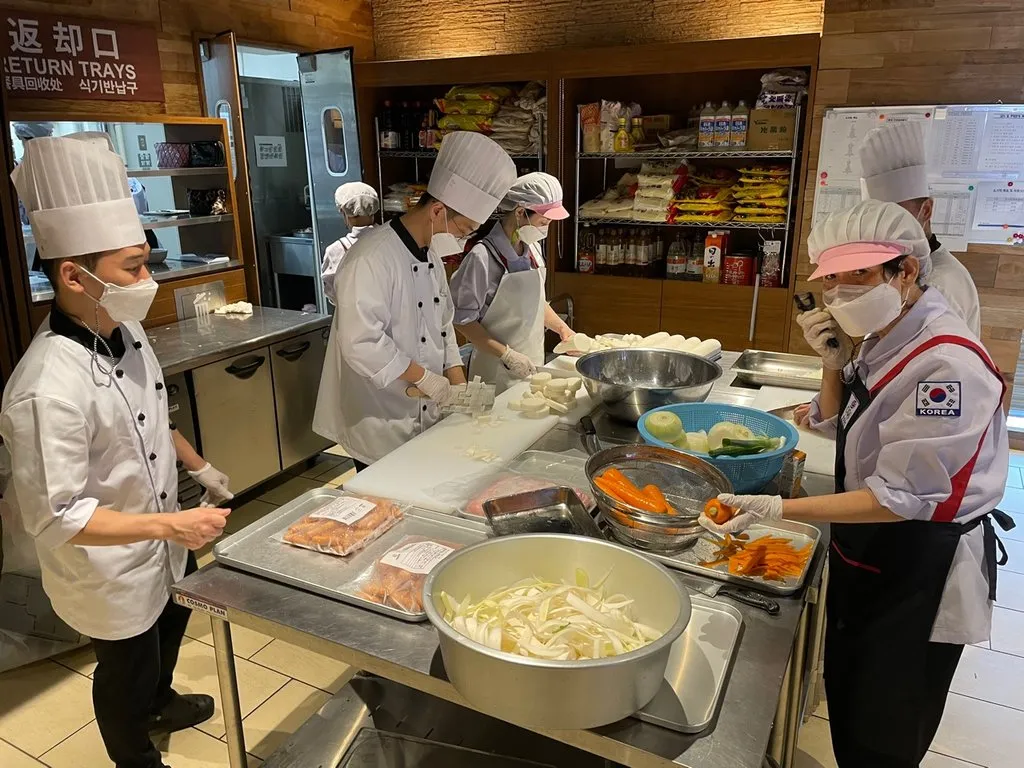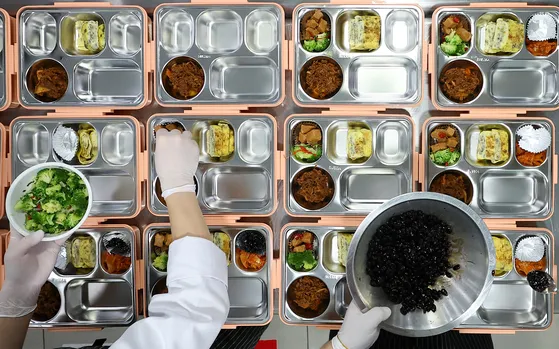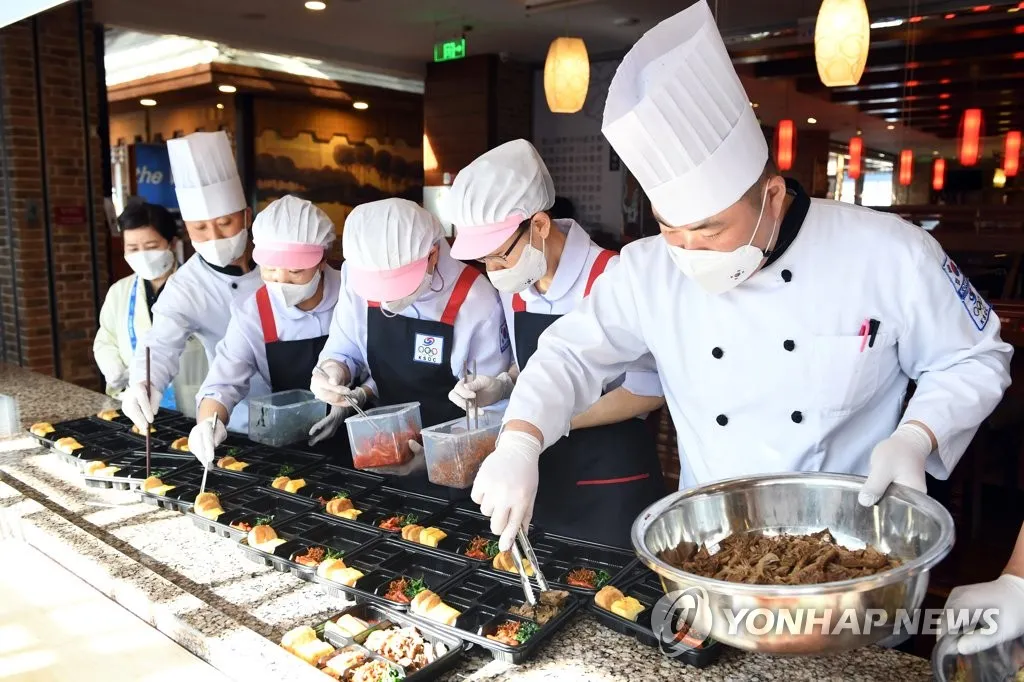
Korean Athletes’ ‘Logistics Camp’ Provides Top-Quality Meals at the Paris Olympics
South Korea has gone above and beyond to ensure that its athletes receive the best nutrition during the Paris Olympics by setting up a specialized “logistics camp” on the outskirts of the city. This camp is stocked with locally sourced food, along with a team of professional chefs who are dedicated to preparing healthy, delicious meals for the athletes.

The Paris 2024 Olympic organizers recently addressed complaints from athletes regarding the quality and quantity of food in the Olympic Village, located in northern Paris. In response, they increased the food supply, particularly meat, fish, and shrimp, and diversified the menu to better meet athletes’ nutritional needs.
However, for South Korean athletes, food quality has not been an issue. Prior to the Olympics, the Korean Sport & Olympic Committee (KSOC) established a “logistics camp” at the French National Defense Sports Center in Fontainebleau, near Paris, to ensure their athletes were well taken care of. This facility includes training areas, a medical and recovery center, and a private dining hall. To further elevate the dining experience, KSOC dispatched a team of 15 top chefs, culinary experts, and nutritionists to serve the athletes nutritious and tasty meals. These chefs are some of the most experienced professionals from Korea’s Jincheon National Training Center, according to KSOC.
In addition to sourcing fresh meat, vegetables, and fruits in France, the culinary team also shipped 1.5 tons of rice, grains, and half a ton of kimchi and spices from Korea to Paris to provide athletes with familiar, comforting food.
Unlike other national teams that scrambled to hire chefs and source additional food to cope with the early shortages in the Olympic Village, the Korean “logistics camp” began delivering traditional Korean lunchboxes to the village a week before the opening ceremony.
These lunchboxes contain nutritious, well-loved dishes like rolled eggs, stir-fried anchovies, spicy pork, braised black beans, and cauliflower. Side dishes (banchan) are neatly arranged in spill-proof, recyclable metal trays. A banner at the dining area encourages the Korean athletes: “Taegeuk warriors, eat well and stay strong to meet the nation’s expectations.”

So far, Korean athletes have responded positively to the meals provided by the camp. “It feels like KSOC has brought the entire Jincheon Center to Paris,” said fencer Gu Bon-gil.
“In the past, we’ve had difficulties with food when competing in Europe, but not this time. The quality of the food is excellent,” added swimmer Hwang Sun-woo.
The South Korean team’s common room in the Olympic Village has also drawn envy from other international athletes. KSOC flew in instant foods like ramen, kimchi, canned tuna, and instant rice from local supermarkets in Korea, transforming the common room into a convenient mini-market.
One of the five common rooms has a terrace overlooking the Seine River, attracting many international athletes who come to enjoy the snacks. Korean athletes reported that the spicy ramen is especially popular, offering a tasty alternative to the bland canteen food.
As of June 5th, the South Korean team ranked sixth in the Olympic standings, with a total of 26 medals, including 11 golds.
South Korea has a tradition of bringing its own food to international sports events. During the 2020 Tokyo Olympics, Seoul set up a similar “logistics camp” in a hotel on the outskirts of Tokyo to provide packed meals for its athletes. The team also had a comparable camp during the 2012 London Olympics.



